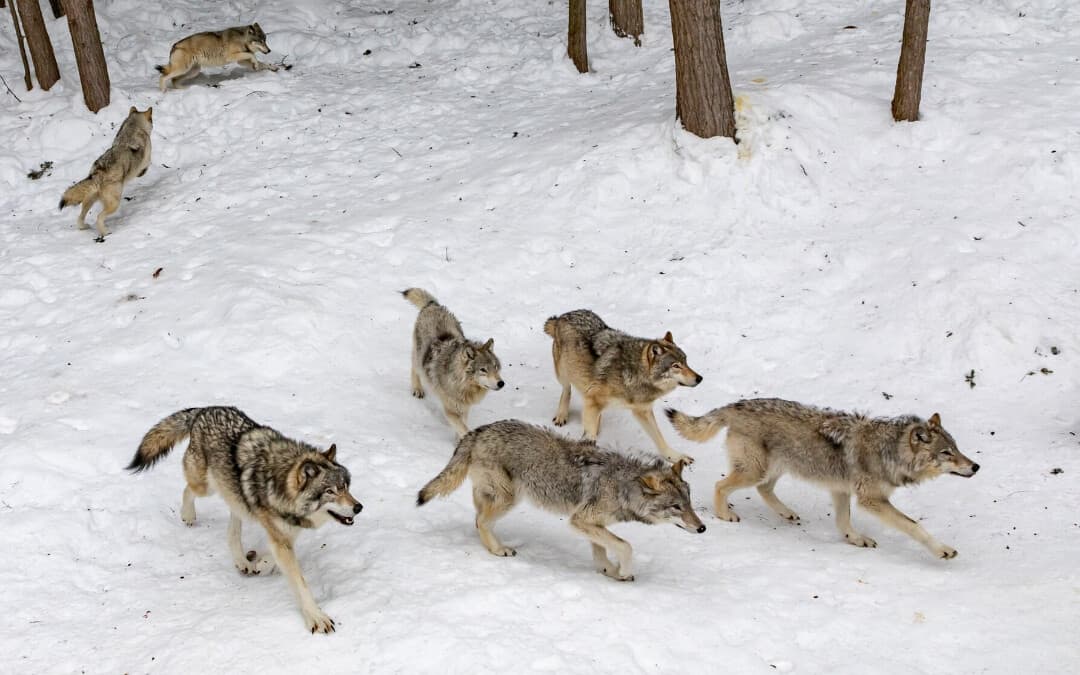Wolves live and hunt in packs learning to survive in the wild from an early age

Wolves: Masters of Survival in the Wild

Introduction
Wolves, magnificent creatures known for their haunting howls and striking presence, are highly social animals that thrive in the wild. They form packs, working together to ensure their survival and adapt to the challenges of their environment. From a tender age, young wolves learn the essential skills necessary to endure in their natural habitat, which sets them apart as masters of survival.
Pack Life: Strength in Numbers
Wolves are territorial animals that live and hunt in packs. These packs consist of a social hierarchy where each member has a specific role and responsibility. By living together in a pack, wolves are able to tackle various tasks more efficiently, including hunting, defense, and rearing of offspring.

Learning from Birth
From the moment they are born, young wolves begin absorbing valuable lessons from their pack. They observe and learn by imitating the behaviors of adult wolves. This early imprinting significantly impacts their growth and prepares them for the challenges they will face later in life.
Hunting Strategies
Hunting is crucial for the survival of any wolf pack. Young wolves start learning the art of hunting by observing their elders during group hunts. They witness the coordination, strategic planning, and teamwork involved in capturing prey. Over time, they actively participate in hunts, honing their skills in stalking, ambushing, and chasing down prey.
Social Bonding and Communication
Communication within a wolf pack is essential for maintaining harmony and ensuring the smooth functioning of the group. Wolves communicate using a variety of vocalizations, body language, and scent marking. Through these methods, they convey information about territory, hunting strategies, reproductive status, and danger. By observing and participating in these intricate communication patterns, young wolves gradually learn the importance of clear signals and effective teamwork.
Survival in a Changing Environment
Wolves have evolved over centuries, adapting to diverse environments and changing circumstances. They possess the ability to survive and thrive in harsh conditions. Young wolves learn how to navigate through challenging landscapes, find food sources, and overcome adversity. This adaptability is crucial for their long-term survival as they encounter various situations throughout their lives.
Conclusion
Wolves are remarkable creatures that possess remarkable survival instincts, developed through years of collective experience and shared knowledge within their packs. From an early age, they learn the art of hunting, teamwork, and effective communication, which enables them to adapt and thrive in the wild. Their pack mentality and unique social structure have allowed them to become one of nature’s most successful and resilient species.
Source: National Geographic
Related Posts
Quick Links
Legal Stuff

